Neville Nuttall wrote a novel called “Proud River”, which, truth be told, didn’t do all that well. Many have dismissed it as some lower league cute story which didn’t really cut it.

But last week I got to thinking what Nuttall’s book was really about. Like so many good books, and good flyfishing books, it had little to do with flyfishing and everything to do with a much more significant message.
In the book, a mining prospector meets with a sticky end before he is able to blab about having found gold in the hills around Underberg.
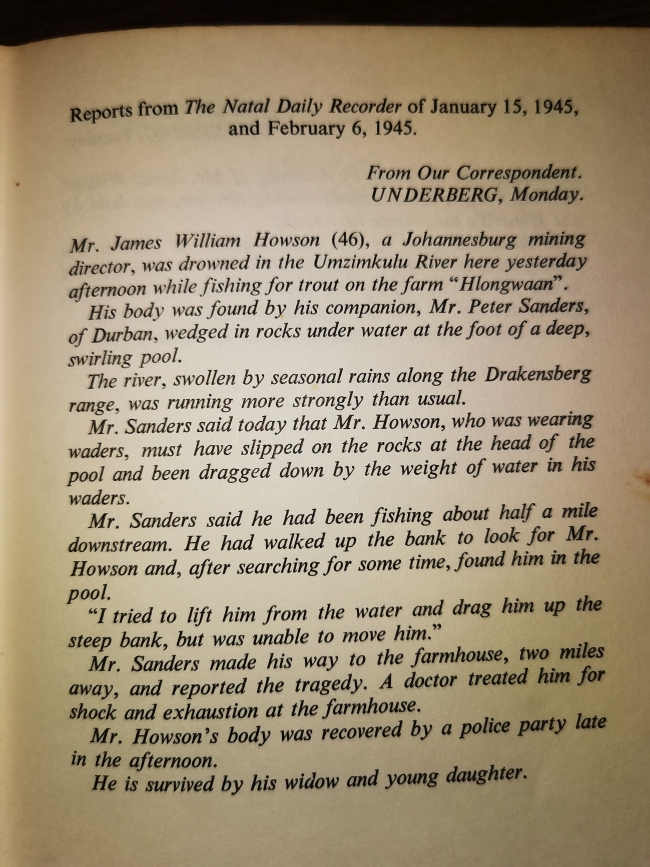
I had just returned from a landscape which has been absolutely trashed by the discovery of gold. It would otherwise be, and have been, a land of majestic rolling hills of windswept grasslands and craggy rock outcrops. With Trout in the river.
But gold was discovered there last century. While the mural above the breakfast serving area at the hotel I stayed at, made an attempt to glorify the early gold diggings, the modern history casts a new light on how it really was.
As I write this , “Zama Zamas” (A South African colloquialism for illegal miners) are busy totally trashing the place. By that I really do mean COMPLETELY trashing the landscape. They turn over vast quantities of rock and soil, much of which is in what was once a stream bed. Then they run the soil and water mix down makeshift boards with struts across them to capture the gold. Then they add mercury, to which the gold adheres, and later they burn off the mercury with a blow torch to be left with the gold, while the mud and mercury washes away down the river. Something like that anyway. There is a spot of cyanide applied in the process somewhere too. The blokes wielding the blow torches put a t-shirt over the nose and mouth while working, but apparently their life expectancy on the job is a little over three years.
This rabble sometimes succumb to collapsed shafts and rabbit holes down which they crawl to extract the loot. At other times the succumb to AK47 round when turf wars break out. On our visits to various sites (I was doing some work there) we had to be accompanied by armed guards in bullet proof vests. And when we met a line of stones across the road, they insisted that was as far as we going.
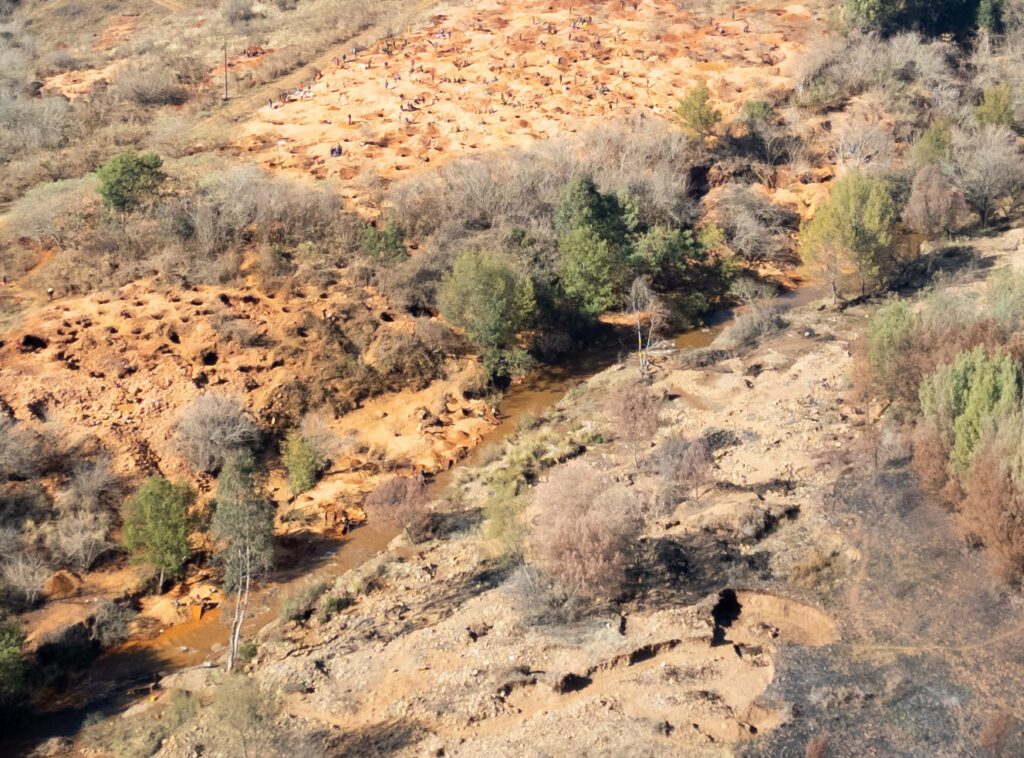
A recent story relates how off duty soldiers from a neighbouring country crossed the border (with their weapons mind you) and came to the valley to act as a private army for a crowd of illegals from another neighbouring country. Amidst all this we were told that the loot is transported out and smuggled over the border by none other than our own national police force. The river runs red, and laced with mercury and cyanide. The devastation threatens the entire agricultural industry and group of small towns downstream. And in the quant tourist town of coffee shops and brick-brac and museums, tourist busses pull over and spill their misty-eyed contents to stroll as close as 30 metres from all that is going on here.
There hasn’t been a stray bullet incident.
Yet.
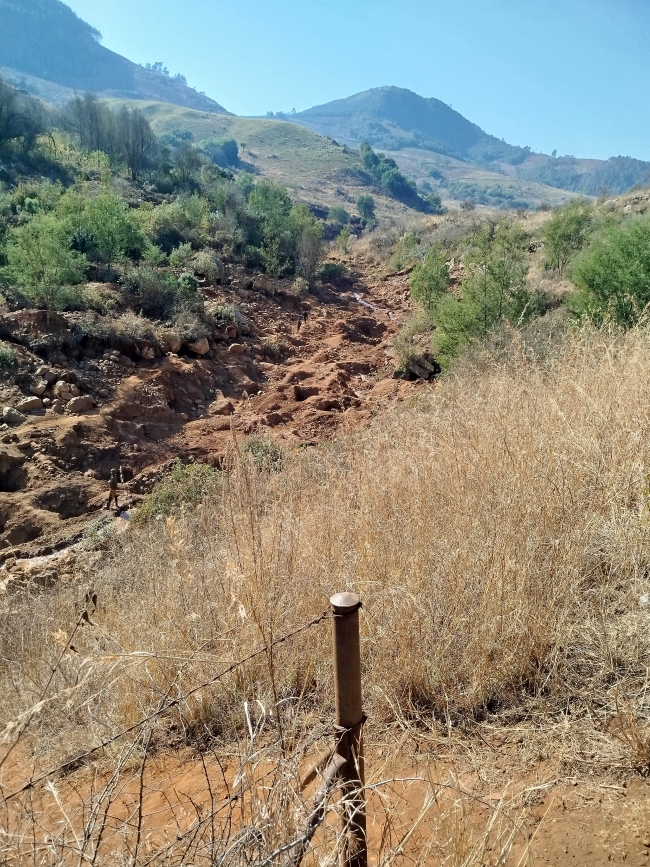
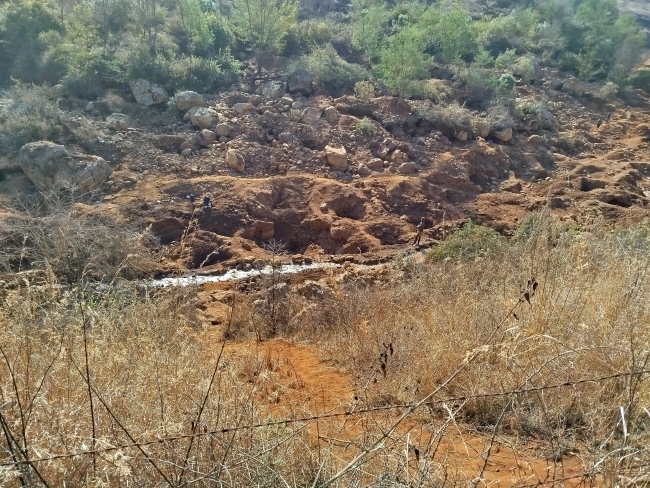
But as I moved to get a cup of coffee in the hotel, and looked up at the mural in the dining room, I got to thinking that the figures of the early nineteen hundreds pictured there were probably little different to the new lot. Theirs too would have been existence of depraved , half starved desperados, hopeful of fortunes. They too came from foreign countries. There can also be little doubt that they had weapons and turf wars, and that many came to a sticky end, either in a back alley or in a collapsed shaft. They too would have trashed the landscape with impunity, and I find it hard to be believe that the police force of the day were not dishonorably involved.
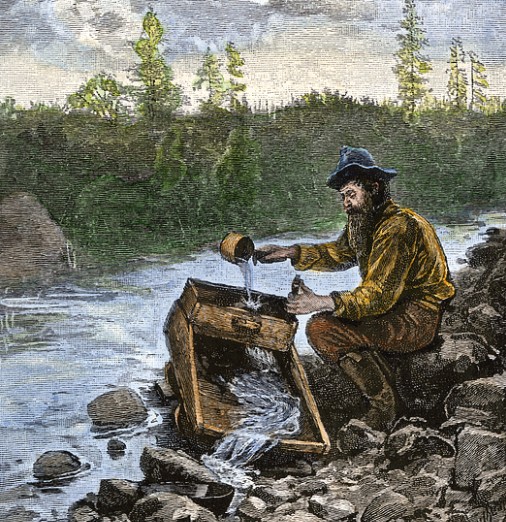
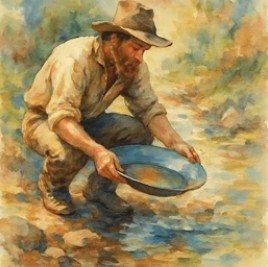
But the tragedy of this hit me hardest when we neared a bridge on the Blyde River, and I saw the faded sign of the Sabie Trout Angling club beside what was once a Trout stream. When I returned home, I got out my fishing log, and searched back until I found the entry. 7th December 1989. That was the day I fished the Blyde River at Pilgrims Rest, having parked near that sign. I landed four Rainbow Trout. My entry comments on the mowed path, and the somewhat strange prevalence of tall reeds and other vegetation with which this KZN midlands boy was not familiar. “felt like a crocodile could appear at any time” I wrote.
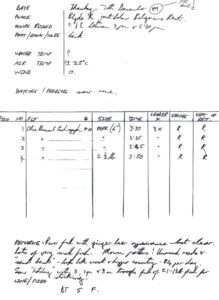
Well, if a crocodile did appear now it would likely be an apocalyptic thing with two heads. And you wouldn’t see it coming from beneath that orange water.
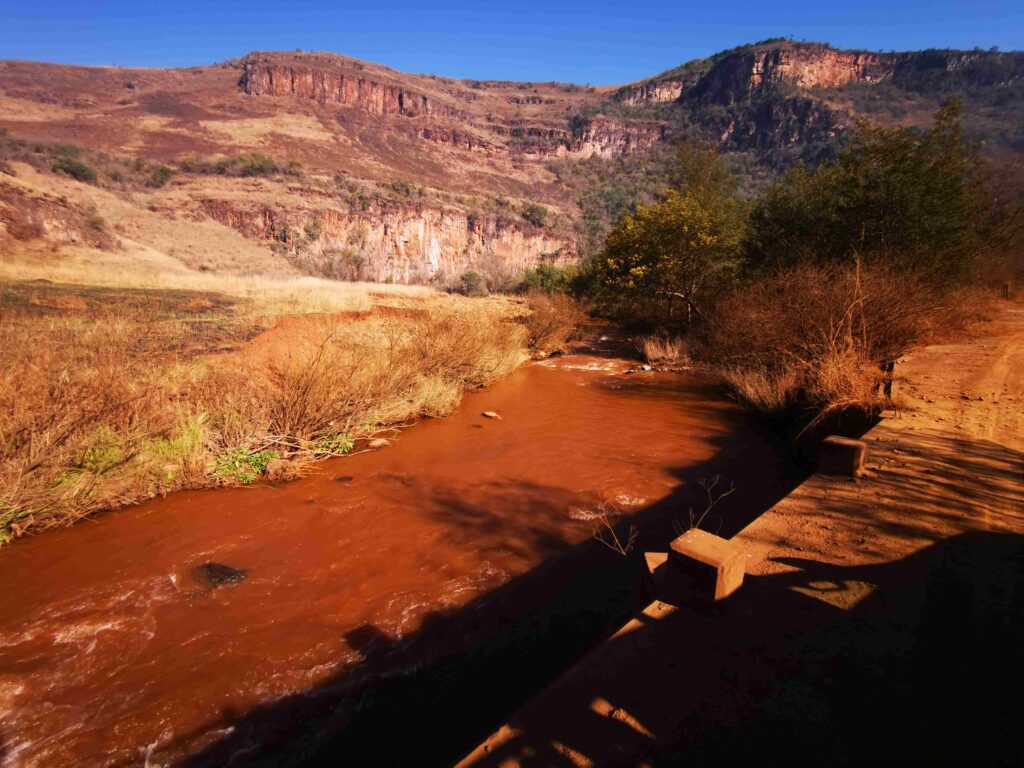
Proud River was about so much more than a fisherman who allowed his prospector companion to fall in a deep hole in the river. That book is about what we have in the KZN midlands and elsewhere, and how far one might need to go to protect it. It is a story in which a deeply understood notion of how bad things could be, is understood with vision and trepidation. The kind of thinking and understanding that comes to Grandpas who know greed when they see it, and aren’t fooled by romanticized murals.
2 Responses
This is a great tragedy, Andrew. I can imagine that river running crystal clear. Those critics clearly missed Neville Nuttall’s point!!
Fantastic. I really liked the thought provoking comparison between Zama zamas and the Old timers!
We’ve been messing up our planet for a long time, now there’s just so many more people!